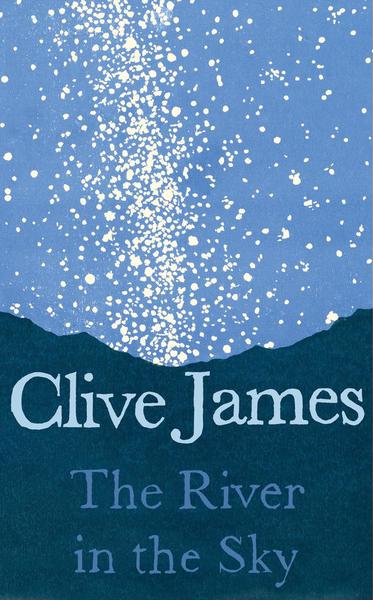
The River in the Sky
by Clive James
RRP $25
Clive James made a late career of dying, though modern medicine gave him a reprieve, enough to resume his critique of modern culture and to give unexpected time to indulge more in his first love, poetry. The River in the Sky takes its title from the Japanese term for the Milky Way.
Originally James touted this as the title for his proposed history of the Pacific war, a dominant feature of James’s memory, since his father was killed in the war. But it has been repurposed to stand here for James’ final journey, a celestial River Styx, though at the same time he says there is no journey, only reabsorption into stardust.
While recent books of poetry have covered his illness amongst various topics in collections of bits and pieces, this work is a book-length poem, a mini-epic that is more biographical than his earlier books (even his earlier memoirs kept his private life somewhat at bay), and even though it is a more cohesive project it still jumps around as it shakes the kaleidoscope of James’s life, which, like a sunset, both blazes and fades here. (The sun may be a fitting metaphor, as his daughter has wryly referred to the fact that James’s self-deprecation can cunningly hide a large ego.)
The book begins in stillness but then, as he gets going, images spill out, grasped from all directions: high and low culture, past and present, East and West. Michelangelo and Kokoda pass by in the same breath and he likens seeing cricketer Keith Miller to being at Troy. His father, who died in the Pacific War when James was young, makes multiple appearances and James suggests his relentless collection of experiences tries to make up for his father’s absence. Here in his ‘valley of reflection’ he remembers opera, jazz, paintings, aircraft and movie stars, loves and losses. He recalls Bogart and Bergman, the model train in the Strand Arcade, deep sea sharks, the Watergate burglars, tangoing in South America, Walt Whitman, Grace Kelly, Matisse, Thelonious Monk, turtles on the reef, the Olmecs, Las Vegas and Proust. The Egyptians recur. He describes the Earth’s surface viewed from a plane as like a pharaoh’s ring. Egyptian civilization stands for the passage of time and the human tendency to want to build monuments to a life passed. James sees the Egyptians’ preparations for the afterlife as folly, but understands their search for transcendence. James says he has been haunted by ‘beauty absolute’.
At the poem’s centre is a Surrealist journey through Luna Park and his childhood memories. It’s an exercise in remembering for its own sake, and an exercise in craft, in the enjoyment of writing, but it’s also perhaps an attempt to re-stake a claim for James’s position as cultural critic extraordinaire, chronicler of the arts in the twentieth century and beyond, and also as preeminent Australian man of letters, polymath, poet and Dante translator, and not just TV funnyman. Speaking of Dante, James’s poem echoes Dante’s in its detail, in its surrealist journey, except that James looks back over a life lived, Dante forwards to what might come. Dante envisages an other-worldly realm, James argues for the riches of this one.
But there is also disbelief that life is so short. Life is described as a dive from a high tower and a kick of sand in the shallows. These experiences are it, and then, says James, nothing. He repeatedly states his almost religious certainty that there is no afterlife. How he knows, I’m not sure. If you say it often enough I suppose it takes on a ring of truth, but there have been no reports back, which might suggest there is nowhere from which to report back, but it’s not exactly a fool-proof argument against. Anyway, there is tension within the poem between the richness of life, the profusion of human cultural achievements (and the complexities of history) and the surprise one can feel at the brevity. But there is also the joy of experience, of cramming it all into a life, which has to end, for all of us, not just those who through illness can see the end. As always, James’s critique of culture tends towards extolling the positive, encouraging a soaking up. Sometimes it can sound like bragging, but it’s simply enthusiasm for that ‘beauty absolute’.
4/5
Visit Nick Mattiske’s website to read his piece on Clive James’ life and more of his reviews and writing on literary matters.


Comments are closed.